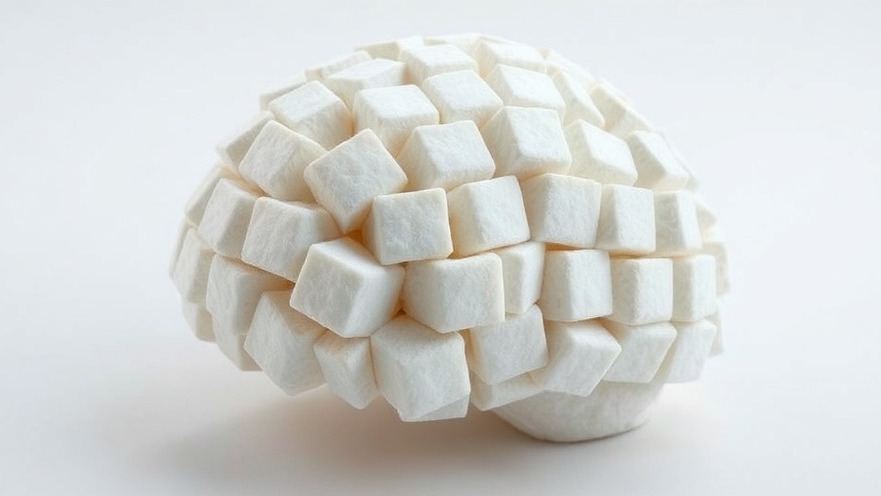
A Revolutionary Find: How Sugar Can Guard Against Alzheimer's
In a groundbreaking study from the Buck Institute for Research on Aging, scientists have discovered that sugar metabolism in brain cells plays a critical role in protecting against Alzheimer's disease. This research could redefine our approach to dementia treatment and prevention.
The Unexpected Role of Glycogen in Brain Health
Traditionally, glycogen, a storage form of glucose, has been viewed merely as an energy reserve. However, this new study reveals that glycogen's role in brain cells, specifically neurons, is far more dynamic. Professor Pankaj Kapahi, a senior scientist involved in the study, emphasizes that stored glycogen doesn’t just remain idle in the brain but has a significant impact on neurological health.
Blocking the Bad: The GlyP Enzyme's Essential Function
The researchers pinpointed an enzyme called glycogen phosphorylase (GlyP), which is crucial for breaking down glycogen. When GlyP activity is impaired, toxic tau proteins accumulate, leading to increased brain degeneration. This finding highlights a potential target for new therapies aimed at enhancing GlyP function to combat Alzheimer's-related damage.
Bridging the Gap: Diet and GlyP Activity
Interestingly, the study also found that dietary restriction can naturally boost GlyP activity. This suggests that simple lifestyle changes may have profound effects on brain health. By enhancing the body’s ability to detoxify harmful substances, these dietary adjustments can play a proactive role in managing neurodegenerative conditions.
A Glimmer of Hope for Alzheimer's Patients
As the incidence of Alzheimer's disease continues to rise, this discovery not only opens new avenues for treatment but also raises awareness about the integral role of nutrition in brain health. Understanding how sugar metabolism can affect neuronal function bolsters the argument for a holistic approach to dementia care that encompasses diet alongside traditional medical interventions.
 Add Row
Add Row  Add
Add 




Write A Comment